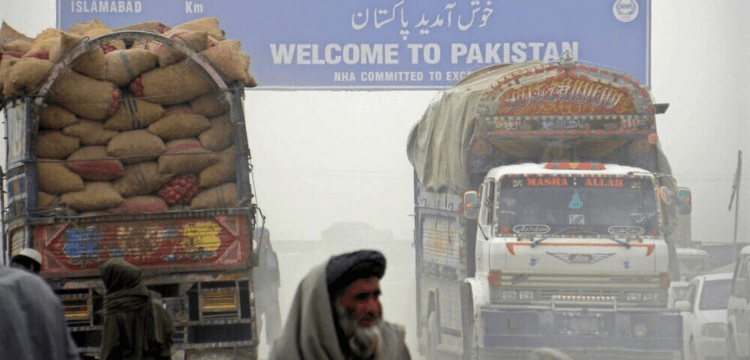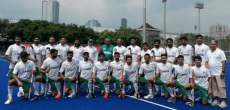[vc_row][vc_column][vc_column_text dp_text_size=”size-4″]The Federal Board of Revenue (FBR) has established a strict procedure for the real-time tracking and monitoring of a wide range of import/export cargo, including transit cargo, petroleum, oil, and lubricants (POL) products exported to Afghanistan, trans-shipment cargo, Export Processing Zones, and Special Economic Zones or Free Zones.
The FBR published the Tracking and Monitoring of Cargo Rules, 2023 in a notification on Tuesday.
The technique, according to the new guidelines, will apply to tracking and monitoring the following types of goods in real time from the port of entry to the port of exit or from one warehouse to another.
No cargo covered by these rules may be transferred from the Customs port of entry unless tracking and monitoring equipment are put on the containers and vehicles. According to the guidelines, a carrier or transport operator may not operate a vehicle unless a permanent tracking device is fitted in the vehicle.
The applicant company must provide technological solutions based on GSM or GPRS 5, Satellite Communication, or any other modem technology for monitoring and tracking of cargo containers and vehicles.
Also Read: The government has set a 3.5% growth target for FY24.
The licensees must provide, establish, and maintain a section relevant to the performance monitoring of licenced tracking businesses in the Central Monitoring & Control Room (CMCR) in the Old Customs House in Karachi, or in any other control room specified by the Board. of the event of an alarm, the monitoring section of CMCR must be equipped with hardware, software, plasmas, LCDs, communication, and other allied equipment for observing, analysing, and coordinating with the licensee’s control room or any other stakeholders. The CMCR monitoring section must have the appropriate servers and data storage capacity to maintain and administer databases for the cars tracked on a daily basis, as well as the ability to produce reports for each trip. According to the guidelines, the CMCR operators must be able to receive the map or any piece of it on any monitor from the control room of the licensee connected to the system depending on pre-assigned priorities.
The licensee” shall provide the required infrastructure for the establishment of Mobile Enforcement Units (MEUs), including vehicles (4X4), adequate means of communication with the CMCR and licensees’ control rooms, and routine maintenance activity (POL, repairs, and so forth). The Project Director shall communicate to the licensee the requirements of the Transit Trade Directorates (HQ), in which the MEUs will be stationed at Transit Monitoring and Response Centres (TMRCs) and will be located on a shift rotation basis (24 hours and seven days a week), in addition to determining the total infrastructure required in terms of vehicles and related resources.
The MEUs will be staffed with enough customs personnel and in the manner determined by the Director, Transit Trade (HQ). The licensee must ensure that the vehicles and any accompanying human resources are available 24 hours a day, seven days a week. The MEUs will be responsible for responding to any alerts conveyed to them by licensee control rooms and will coordinate with the licensee’s enforcement units, according to new rules.
The Project Director is responsible for installing and testing tracking and monitoring devices, as well as the tracking system, in vehicles. If the Project Director is satisfied, he or she will authorise the use of tracking and monitoring devices, as well as the installation of a tracking system in the cars. If a new device is introduced, the same procedure must be followed.
The licensee shall develop designated locations at the point of exit near the PCCSS office of Focal Point Exit and shall be responsible for active and close communication with it.
The licensee must reconcile each journey of container and vehicle in real time, and any delays, unusual or unauthorised stoppages, inconsistencies, etc. must be reported immediately. The licensee must create soft and hard reports for the Project Director that include information of the monthly reconciliation, alerts, and results.
The customs squad of IVIEUs shall patrol the designated routes on which transit and transshipment merchandise is plying to check and verify any eventualities en route. The mobile squad may inspect a vehicle if it gets credible information or has grounds to suspect that the goods have been stolen or lost. The squad must immediately notify the CMCR about the occurrence. The Mobile Squad must approve the action conducted with regard to cargo, the transport unit, and so on by entering the information into the system and applying the new rules.[/vc_column_text][/vc_column][/vc_row]











